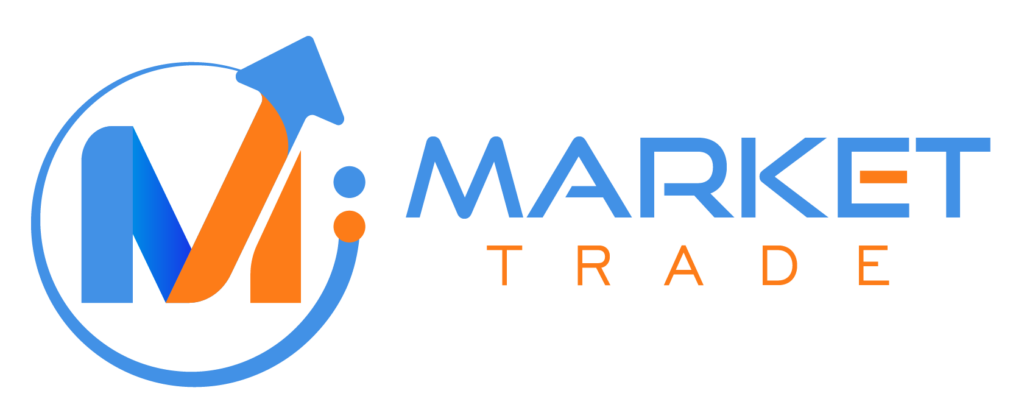India’s commodities market has grown steadily, attracting traders beyond traditional equities and bonds. One of the most popular ways to participate is through MCX trading. The Multi-Commodity Exchange (MCX) is India’s largest commodity derivatives exchange, where traders buy and sell futures and options contracts of metals, energy products, and agricultural commodities.
For traders who want simplified access to commodity derivatives, platforms like Markettrade provide tools, data, and resources to understand and participate in commodity market trading. Whether you are exploring short-term opportunities in gold or want to track crude oil price swings, MCX gives you a structured way to trade.
Understanding MCX Trading
MCX trading means speculating on the future price of commodities through contracts. Instead of buying physical gold, silver, or crude oil, you trade contracts that represent them.
Here’s how it works in simple terms:
- Every commodity has a lot size and a contract expiry date.
- Traders can go long (buy) if they expect the price to rise or go short (sell) if they expect it to fall.
- At the end of each trading session, profits and losses are settled based on daily price movements.
Most traders close positions before expiry to avoid physical delivery and focus on cash settlement.
Why Trade Commodities Through MCX
Trading commodities on MCX offers benefits that attract both beginners and experienced traders:
- Diversification: Commodities behave differently from stocks. Adding them to your trading activity balances exposure.
- Liquidity: Contracts like gold, silver, crude oil, and natural gas witness high volumes, making entry and exit easier.
- Transparency: Standardized contracts and price discovery based on demand and supply ensure fairness.
- Flexibility: Numerous contracts are offered, from mini/micro lots in bullion to energy and agricultural products.
Markettrade makes these opportunities accessible by providing insights, tools, and updates that make MCX online participation easier.
Commodities Traded on MCX
MCX lists a wide range of commodities that fall into key categories:
- Bullion: Gold, silver, and their mini/micro contracts. These are popular because of their high liquidity and global price influence.
- Base Metals: Copper, aluminum, lead, zinc, nickel. Their prices reflect global industrial demand.
- Energy Products: Crude oil and natural gas, known for sharp price movements influenced by geopolitical events and inventory data.
- Agricultural Commodities: Cotton, mentha oil, cardamom, etc., though volumes are usually lower compared to metals and energy.
How to Start MCX Online Trading
Trading commodities is simple with platforms like Markettrade. Here’s how:
Choose Your Commodity: Decide whether you want to trade bullion, energy, metals, or agricultural products. For beginners, gold and silver mini contracts are standard starting points due to liquidity and smaller lot sizes.
Understand Contract Specifications: Each commodity contract has details such as lot size, tick size, and expiry date. For example, a crude oil futures contract may have a different minimum lot size than a gold mini contract.
Analyze the Market: Use technical analysis: price charts, candlestick patterns, and indicators like moving averages. Combine with fundamental analysis: global demand-supply trends, weather reports (for agri-commodities), and geopolitical news.
Place Your Trade: Through an online platform, you can select to buy (long) or sell (short). Orders can be placed as market orders (executed instantly) or limit orders (executed at a set price).
Manage Risk: Commodity markets can be volatile. Use tools like stop-loss orders and trade with calculated exposure to avoid overleveraging.
Close or Hold Until Expiry: Most traders close their positions before expiry to avoid delivery. If you want to hold, ensure you’re prepared for settlement rules tied to the specific contract.
Strategies in Commodity Market Trading
Success in commodity trading depends on disciplined strategies. Some widely used methods include:
- Trend Following: Identify and trade in the direction of the prevailing trend.
- Range Trading: Spot commodities that move within a defined range and trade at support and resistance levels.
- News-Based Trading: Energy and agricultural commodities react sharply to global events, government policies, or weather updates.
- Hedging: While more common among producers or manufacturers, hedging can reduce the risk of price swings.
Markettrade offers resources to help traders learn these strategies and apply them effectively.
Key Risks in MCX Commodity Trading
While opportunities exist, traders should be aware of potential risks:
- Volatility: Commodity prices can fluctuate sharply due to global supply-demand shifts or policy changes.
- Leverage Impact: Commodities allow leveraged positions, which means small price changes can cause big gains or losses.
- Liquidity Concerns: Not all contracts are equally active. Lesser-traded commodities may have wider spreads and slippage.
- Global Influences: Since commodities are globally traded, international events like OPEC decisions or geopolitical conflicts can affect Indian markets directly.
Risk management and continuous learning are essential to succeed.
Recent Developments in MCX
MCX has expanded offerings to suit a broader base of traders:
- Mini and Micro Contracts: These allow participation with smaller capital requirements, especially in bullion.
- Options in Goods: In addition to futures, MCX has rolled out options contracts on commodities like gold mini, increasing flexibility for traders.
- Extended Trading Hours: Certain commodities can be traded until late evening, aligning with global market timings.
These updates make MCX trading more accessible and relevant for retail traders in India.
Why Choose Markettrade for MCX Online Trading
Markettrade simplifies the journey for anyone interested in commodity market trading. Using real-time insights, educational resources, and easy-to-use tools, traders can confidently place and monitor trades.
Here’s how Markettrade adds value:
- Access to live commodity prices and updates.
- Simplified interface for trading different contracts.
- Tools for risk management, like stop-loss settings.
- Educational support for learning technical and fundamental analysis.
Markettrade’s easy-to-use platform, combined with MCX’s organized trading, helps traders explore commodity options reliably.
Conclusion
MCX trading offers Indian traders a transparent and structured way to participate in global commodity movements. From gold and silver to crude oil and base metals, the opportunities are wide-ranging. Informed trading decisions require focus on contract specs, disciplined strategies, and risk management.
Markettrade helps make MCX online trading simpler and accessible. Commodity market trading, with a proper platform and knowledge, can offer portfolio diversification and new trading opportunities.



